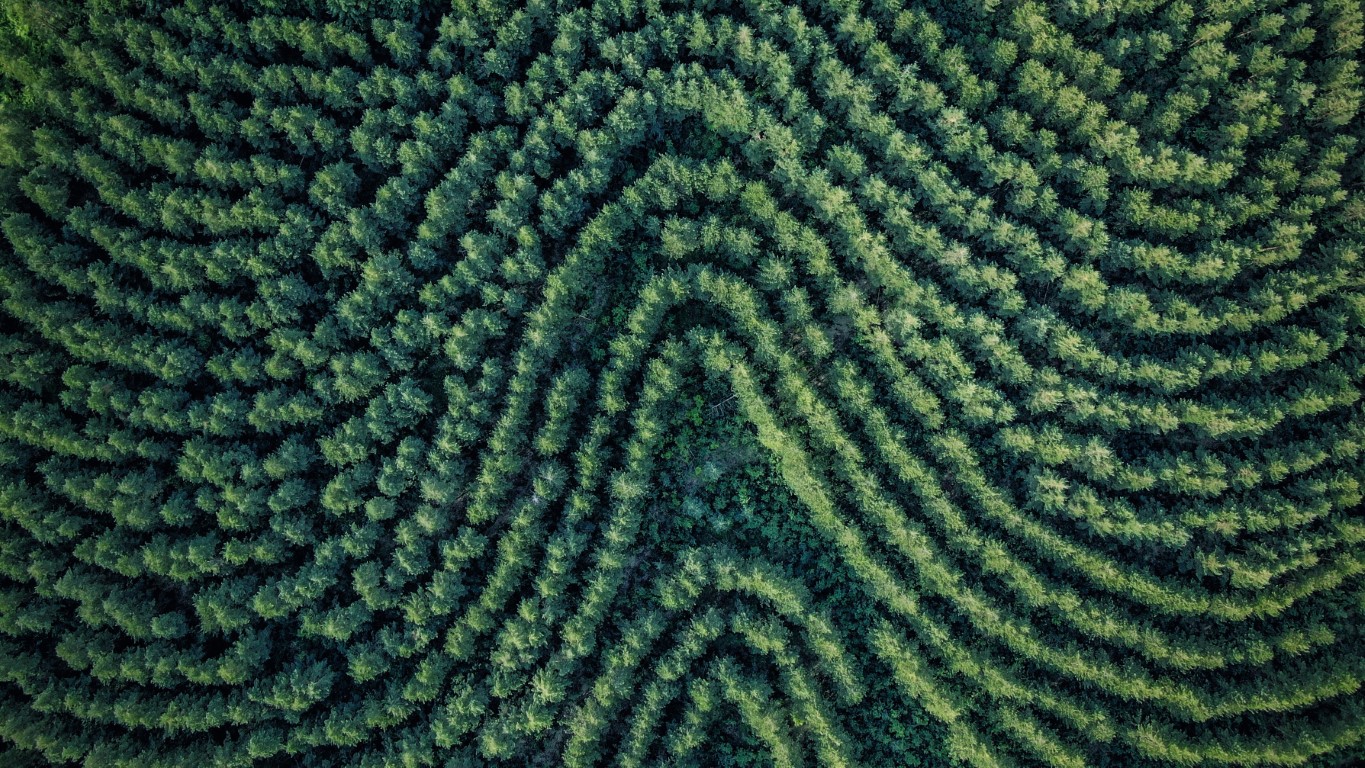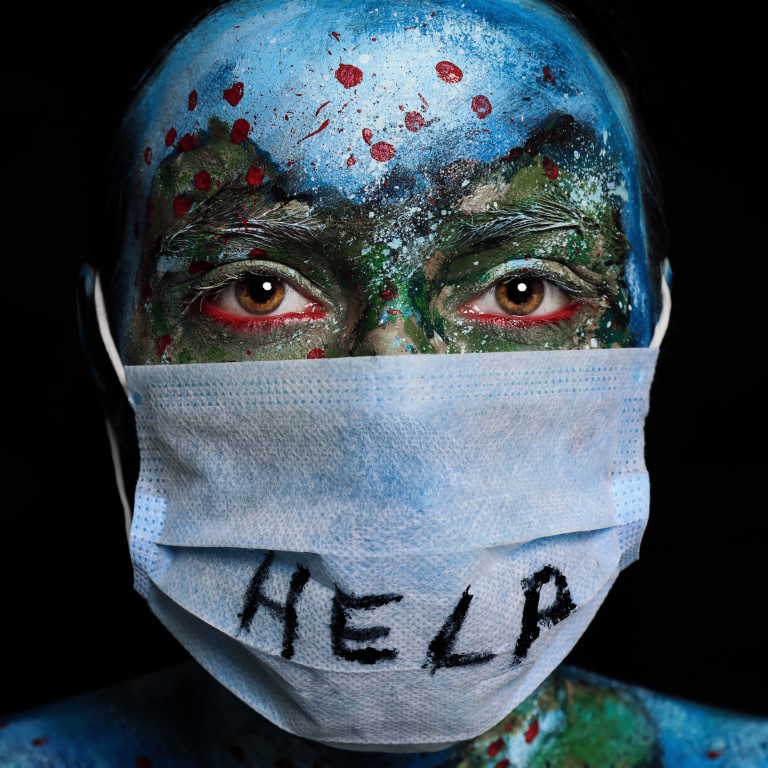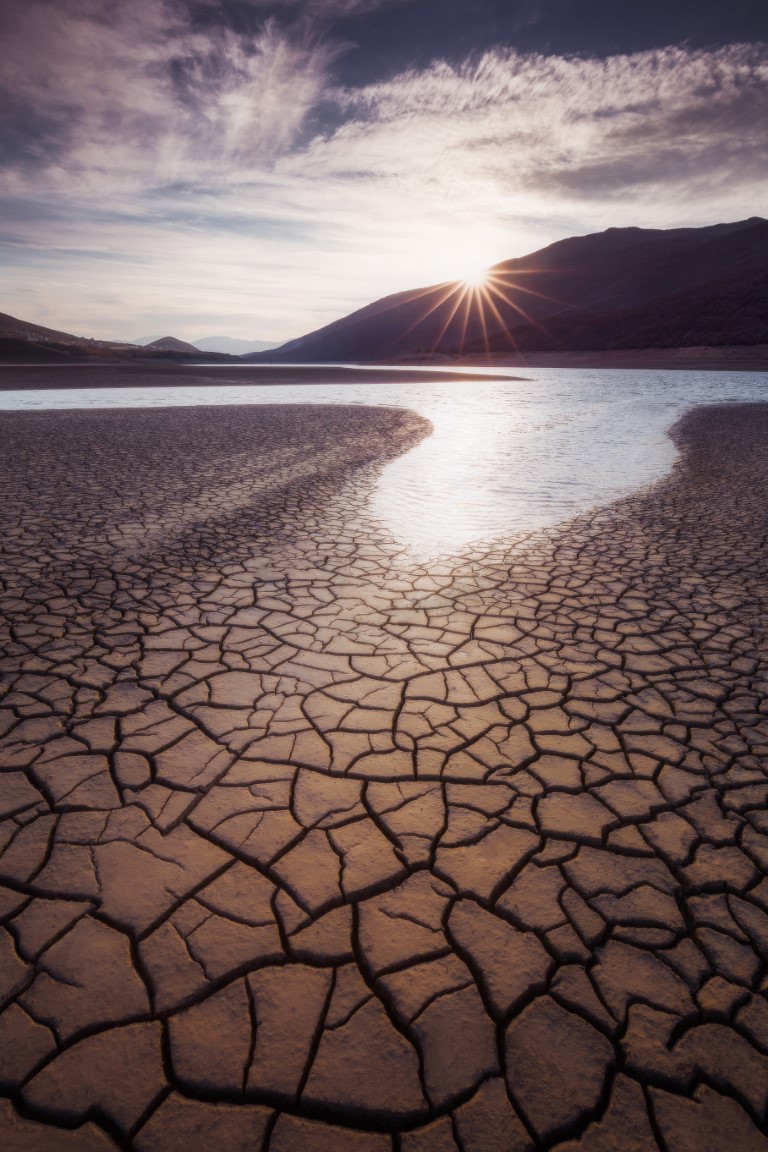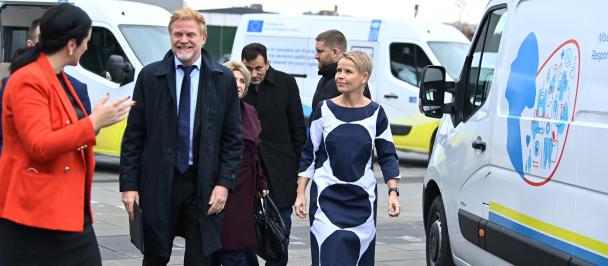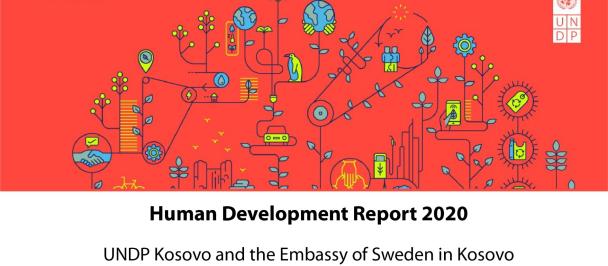Editorial by
Ms. Maria Suokko, UNDP Resident Representative in Kosovo &
H.E. Karin Hernmarck, Ambassador of Sweden in Kosovo
2020 Human Development Report
‘The Next Frontier: Human Development and the Anthropocene’
We are entering a new geological era - the Anthropocene, or the Age of Humans. For the first time in 300,000 years, humans have become the dominant force in shaping the future of the planet - instead of the planet shaping us. Our actions – particularly our dependence on fossil fuels and material consumption - are driving climate change, biodiversity collapse, air and water pollution, and land degradation. It is time to for all societies to re-think their development pathways.
Covid-19 should not have taken us by surprise. Scientists have long been predicting extreme weather events and the outbreak of a virus leaping from nature. Unless we change our relationship with nature, Covid-19 will not be the last crisis we face. Pressures on the planet need to ease if humanity is to survive and thrive in the Anthropocene.
Covid-19 has exposed the weaknesses in our societies – and exacerbated inequalities everywhere. The impacts of the Covid-19 crisis threaten to reverse global human development for the first time in 30 years, hitting the people most in need the hardest.
As we mark the 30th anniversary of UNDP’s Human Development Report (HDR), this year’s report takes an experimental lens in assessming human development and the approaches needed to ensure a better balance between people and planet in the Anthropocene. The report shows us that no nation is yet achieving high levels of human development without putting damaging pressure on the planet.
Planetary Pressures-adjusted Human Development Index shifts the rankings
With the changing human development trajectory, and rising social as well as planetary inequalities, the report introduces a new Planetary pressures-adjusted Human Development Index (PHDI). In addition to taking into account human development in terms of health, education, and standards of living, the index includes the impacts on the planet by considering nations’ CO2 emissions and material footprint. The PHDI suggests that the progress in human development has not been increasing as fast as we have assessed so far, as it has led to incased planetary pressures.
More than 50 countries with a high HDI have lower PHDI rankings, due to a high dependency on fossil fuels and a large material footprint, while many low and medium HDI countries jump upwards when planetary pressures are taken into account. Albania, for instance, advances 28 places in the PHDI ranking, compared to its HDI. This tells us that it is possible to reach high levels of human development with reduced CO2 emissions and more efficient resource use.
With positive news coming out on Covid-19 vaccines, the world will soon start to look at moving past the pandemic but there is no return to the ‘old normal’. Business as usual is not an option. We have a once-in-a-generation an opportunity for humanity to choose to change.
The next frontier calls for better balance between people and planet
The next frontier for human development will require working with and not against nature. Inequalities in wealth, power, and distribution of resources – both within and between nations are driven by and exacerbate planetary imbalances. Communities in most vulnerable situations are often severely affected and exposed to excessive pollution and high environmental risks, especially in urban areas.
Bold decisions and systemic changes are needed. As the challenges become more intertwined and their consequences harder to bear, enhanced capabilities such as high-quality higher education, and technology grow into critical tools to solve the challenges.
Everyone has a role to play, but people need to be inspired to play it and given the opportunities to act. Almost 80% of the global population believes that it is important to protect the planet but only 50% say they are likely to take concrete action to save it. Changes are needed in social norms and values, incentives and regulation. We need nature-based solutions that lead to protecting, sustainably managing, and restoring ecosystems.
Due to the limitation of data availability, Kosovo is not included in the global HDR rankings. This shows there is a need to continue strengthening Kosovo’s data system to ensure future development plans and policies will be based on evidence and fully reflect environmental impacts of Kosovo’s development.
Covid-19 recovery is an opportunity for economic transformation
Kosovo is at a crossroad. We have a historic opportunity for economic transformation with the Covid-19 recovery with massive financial resources from both domestic as well as from external sources. This is an opportunity to choose a path towards a healthier society with a better balance between people and planet.
With heavy reliance on coal for energy production, energy transition to cleaner options is the only way forward, if Kosovo aspires to advance on its European integration path – with the EU’s commitment to become carbon neutral by 2050. The burdens on health and the environment are too large to ignore.
Shift from linear to circular economy is needed to improve the efficiency of resource use and generation of waste. Kosovo’s innovative potential needs to be mobilized to re-configure production systems. We need green recovery to meet the Sustainable Development Goals (SDGs), to create future economy and green jobs for Kosovo, and to accelerate the EU integration.
Read the full report: http://hdr.undp.org/en/2020-report
---------------------------------------------------------------------------------------------------------------------------------
Photos on this page are from the #ecokosovo3 competition with the theme “What does the Earth tell you about the life you’ll have tomorrow?”. Photo on the top of the page by Bleron Çaka. You can see the other winning photos at the bottom of the page.
Alban Dragosha
Selvana Hyseni
Bardha Goga
Bleron Caka

 Locations
Locations